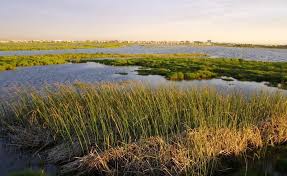
By John Cassim
The Environmental Management Agency (EMA) Director of Environmental Management Services, Steady Kangata, has cautioned critics that hosting the Ramsar COP 15 on Wetlands does not make Zimbabwe a saint. Kangata was responding to the wide criticism against EMA following the water pollution of Lake Chivero in Harare that led to the death of thousands of fish, four white rhinos and other wildlife species recently.
Zimbabwe will be hosting the 15th Meeting of the Conference of the Contracting Parties (COP15) from 23 to 31 July this year in Victoria Falls, where close to 5000 delegates from 173 parties and Heads of State will attend.
Lake Chivero is one of the seven Ramsar Sites in the country hence the criticism has been loud.
However, Kangata said Zimbabwe is not a saint with regards to pollution of some of the wetlands across the world.
“We are talking of climate change, we are talking of biodiversity loss, we are talking of pollution. So we should not shy away from pollution because it’s a global issue and Zimbabwe is no exception. But unfortunately, it happened in one of the Ramsar sites.
So the most important thing is not to say that Lake Chivero has been polluted. The most important thing is how do we ensure that there is a recovery and a proper remediation. That should be our starting point. So bringing a convention to the area does not mean that we become saints all of a sudden,” Kangata told delegates at a Wetlands COP 15 Communications Stakeholders Planning Meeting, held in Harare this Wednesday.
Kangata gave an example of a Climate Change Conference Of Parties (COP) that was held in Dubai which is located in a desert.
During the meeting, EMA revealed that preparations for COP-15 have commenced. A logo has been unveiled, and the countdown to July will officially begin on February 2nd, coinciding with World Wetlands Day.
A month ago, a tragic environmental incident occurred at Lake Chivero. Four white rhinos, three zebras, four wildebeests, four fish eagles, numerous goats, cattle, and thousands of fish perished after consuming water contaminated with cyanobacteria.
This poisoning is alleged to have resulted from the City of Harare’s failure to prevent the discharge of raw sewage into the lake, which also serves as the primary water source for the capital.
Some environmental experts suggest that excessive temperatures may have triggered algal blooms in water bodies with high phosphorus concentrations, such as Lake Chivero.
“Climate change has exacerbated an existing problem due to the warmer and stagnant water conditions,” observed a Harare-based environmentalist.
Harare Mayor Jacob Mafume acknowledged the discharge of raw sewage into the lake, but also blamed illegal settlers who have damaged parts of the main sewer pipes, causing raw sewage to flow directly into the lake.
